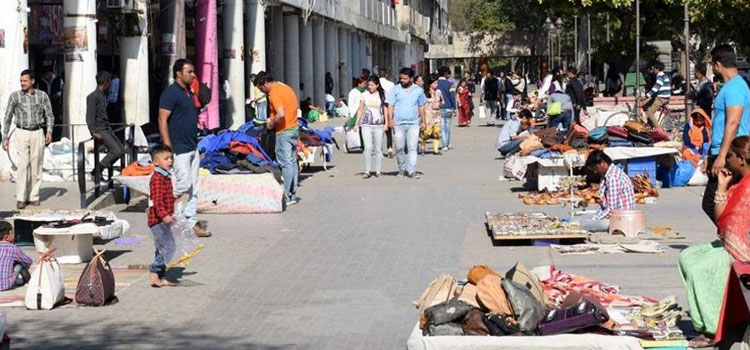Chandigarh to implement Street Vendors Act on October 2
A year after completing survey of street vendors in the city, the Chandigarh municipal corporation is all set to implement the Street Vendors’ (Protection of Livelihood and Regulation of Street Vending) Act, 2014, in Ward No. 1 on October 2.
“As we have got the architect department’s approval for Ward No. 1, we are implementing the act from October 2. Other wards will be covered soon.”
The ward comprises Sectors 1 to 11. The remaining 25 wards will be covered later.
.As Sectors 1 to 6 are considered heritage sectors, the 664 vendors to be rehabilitated in the ward will be accommodated only in Sectors 7 to 11. The UT architect department has approved sites for Ward No. 1 after a fresh survey. MC additional commissioner Uma Shankar Gupta said: “As we have got the architect department’s approval for Ward No. 1, we are implementing the act from October 2. Other wards will be covered soon.”
As per the survey conducted in July-September 2016, the total number of vendors in the city was 21,622. The MC was to issue licences to the vendors by March 31, 2017. The civic body had decided not to challan them until the survey was completed. The survey got over a year back, but no licence or challan has been issued yet.
Meanwhile, even as the UT architect department has declared Sectors 17, 19 and 22 as no-vending zones, the MC is adamant upon declaring these sectors as vending zones. In the House meeting two months back, the MC took the decision, but the architect department is yet to take a final call on this.
As per the act, vendors providing essential services — washerman, cobbler, barber, cycle repairman, tea seller — will not be moved. Only non-essential service providers — vegetable and fruit sellers besides those selling clothes, accessories and other wares on the roadside or at kiosks in market areas — will be rehabilitated in the new vending zones. However, both the categories will have to pay a monthly fee — Rs 2,000 in case of the non-essential service providers and Rs 1,500 for essential service providers.
